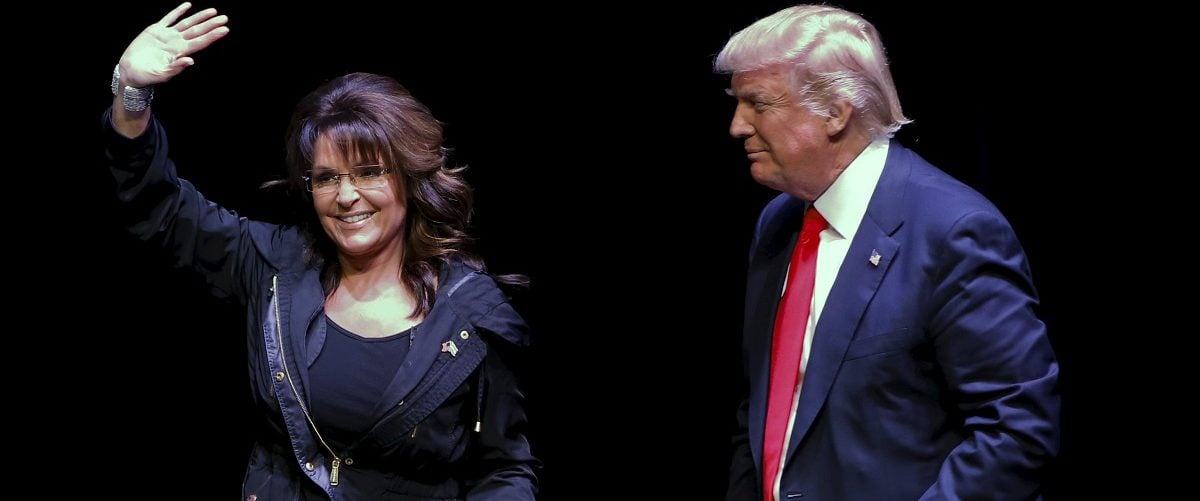Trump-endorsed candidates are battling incumbent Trump critics and other established GOP candidates in Tuesday’s primaries in Wyoming and Alaska.
Former President Donald Trump’s endorsements for the 2022 midterm elections have generally fared well, with the former president notching notable victories in places like Arizona and Pennsylvania. While Trump-backed candidate Harriet Hageman is expected to unseat anti-Trump Republican Wyoming Rep. Liz Cheney in the state’s congressional primary on Tuesday, his endorsed Alaska candidate Kelly Tshibaka is struggling against Republican Sen. Lisa Murkowski.
Many Wyoming Republican voters are choosing Hageman because they say Cheney has turned on her party for voting to impeach Trump and leading as vice chair of the Jan. 6 committee. However, in Alaska, Tshibaka’s battle to unseat Murkowski is hampered by Alaska’s new ranked voting system that has made strong party support less crucial, and Murkowski has a cross-aisle appeal.
Cheney is trailing over 25% behind Hageman in average polling tracked by RealClearPolitics. She was censured by the Wyoming GOP and removed from her position as the House Republican Conference chair.
“I don’t expect to lose,” she reassured CNN in a recent interview, but stated that she will remain politically involved even if she does.
Cheney’s candidacy prompted many Democrats and independents to register Republican which could boost her primary score, data from the Wyoming Secretary of State’s office shows.
Hageman prides herself as a “deep-rooted Wyomingite” and an attorney who has been “fighting back” against federal agencies she claims try to “usurp” people’s rights. She came in third place in the 2018 Republican primary for Wyoming governor.
She had previously advised Cheney’s winning congressional bid in 2016, but now says her party has taken “the right direction” by censuring her.
In contrast, Murkowski’s primary race in Alaska is not a do-or-die situation, despite Trump’s support for Tshibaka, her chief Republican opponent. Alaskans voted in 2020 to become the second state to adopt ranked-choice voting, which replaces partisan primaries with one primary for all candidates running for election.
The top four candidates who receive the most votes advance to the general election, no matter their party affiliation. That means Murkowski does not necessarily need to receive the most Republican votes in the primary, which could attract Trump supporters backing Tshibaka, to advance to the November general election.
Both Tshibaka and Murkowski are expected to make it to the fall, where independents and even friendly Democrats will be among the voters who decide whether Murkowski returns to office.
Murkowski has more cross-aisle appeal because she was the first Senate Republican to call for Trump to resign from office and voted to convict him after the Jan. 6 Capitol riots. She often breaks with the GOP, voting in line with President Joe Biden’s positions nearly 70% of the time, according to FiveThirtyEight.
Morning Consult Political Intelligence reported late last month that 46% of Alaska voters approve and 39% disapprove of Murkowski’s job performance.
Tshibaka claims she has spent her career “holding federal insiders accountable,” but her critics imply she is an extremist.
Former Alaska governor and vice presidential candidate Sarah Palin has Trump’s endorsement for the state’s only House seat in a special election held on Tuesday to replace the late GOP Rep. Don Young.

Former Alaska Governor Sarah Palin (L), introduces Republican U.S. presidential candidate Donald Trump during a Town Hall at the Racine Civic Centre Memorial Hall, April 2, 2016. REUTERS/Kamil Krzaczynski.
Palin advanced from June’s primary race as the top choice over 48 candidates, including the Republican candidate Nick Begich and the Democratic choice, Mary Peltola, who both made it to the general race.
But she is now trailing in the general polls, according to FiveThirtyEight.
Begich is endorsed by Alaska’s GOP and comes from a family dynasty of elected officials. Palin deemed him a “RINO,” or Republican-in-name-only, but some voters support him as a moderate who can reach across the isle.
The Murkowski, Cheney, Palin and Hageman campaigns did not immediately respond to the DCNF’s requests for comment.
Content created by The Daily Caller News Foundation is available without charge to any eligible news publisher that can provide a large audience. For licensing opportunities of our original content, please contact licensing@dailycallernewsfoundation.org.